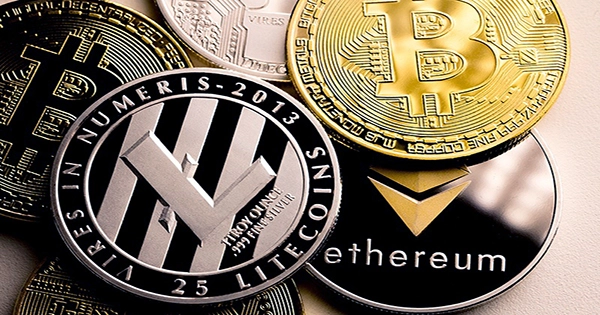Between Ukraine and Russia, a very 21st-century confrontation is escalating, defined not just by military force and geopolitics, but also by social media, information management, and cryptocurrencies. Both sides have embraced cryptocurrencies as a result of Russia’s recent invasion of Ukraine, prompting some to label the conflict the “world’s first crypto war.” It is unknown how this stunning facet of the fight will play out, as it is with many aspects of the invasion.
The Ukrainian government is asking for Bitcoin, Ether, and Tether donations directly, and has already raised the equivalent of $35 million in cryptocurrency. Some individuals are also contributing money to the Ukrainian government’s wallet in the form of valued NFT “artworks.” Beyond governments, the people of Ukraine are also benefiting from cryptocurrency. Following the outbreak of hostilities last week, the Ukrainian central bank banned electronic cash transfers and ATMs were overwhelmed, prompting many people to turn to cryptocurrencies. Crypto proponents think that this will not only help Ukrainians deal with the current crisis, but will also help them safeguard their riches in the long run.

“Cryptocurrencies have also been utilized to help Ukrainians acquire essential products and services when ATMs are closed and important infrastructure has been destroyed by Russian strikes.” In a statement given to IFLScience, Ian Taylor, Executive Director of Crypto UK, said, “Concerned friends and relatives may donate money to their loved ones across borders using bitcoin.”
“With the Ukrainian economy on the verge of collapsing as the conflict drags on, crypto offers a mechanism for individuals to secure their savings, such as their pensions.” It may also be used to get around capital regulations, allowing people to keep control of their money. “Whether it’s a loss of infrastructure due to war or a mismanaged economy, crypto is trustless and gives financial sovereignty,” Taylor stated.
Cryptocurrency, on the other hand, might be used by the Russian government. Mykhailo Fedorov, Ukraine’s Vice Prime Minister and Minister of Digital Transformation has requested all major crypto exchanges to restrict Russian users’ addresses. Coinbase and Binance, on the other hand, have rebuffed demands for a blanket ban on Russian accounts. Both exchanges have stated that they will restrict accounts and transactions involving sanctioned persons, such as blacklisted oligarchs and politicians, but they will not do so for regular Russian residents.
Binance told CNBC that arbitrarily banning people’s access to its crypto would “fly in the face of the reason why crypto exists.” Binance, on the other hand, has given $10 million to help with the humanitarian catastrophe in Ukraine. Some analysts believe the Kremlin might use cryptocurrencies to circumvent sanctions imposed by the European Union, the United States, the United Kingdom, Japan, Switzerland, Australia, Taiwan, and others. Others argue that it’s not as simple as that, claiming that Russia is too heavily enmeshed in the global banking system to easily dodge sanctions.
“Moving significant amounts of crypto and converting it to useful cash is quite tough,” said Ari Redbord of TRM labs, a blockchain intelligence firm, to Al Jazeera. “Russia will not be able to replace the hundreds of billions of money that may be banned or frozen with crypto.” Whether you like it or not, it looks that this fight is demonstrating how bitcoin is delivering on its promise of allowing individuals to bypass established financial structures. Whatever side you’re on and whatever ethical position you hold, it’s apparent that cryptocurrency is becoming an inextricable part of the larger world, good, terrible, and ugly.
















